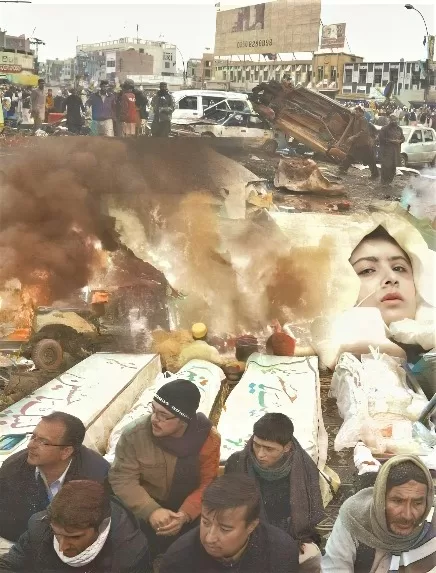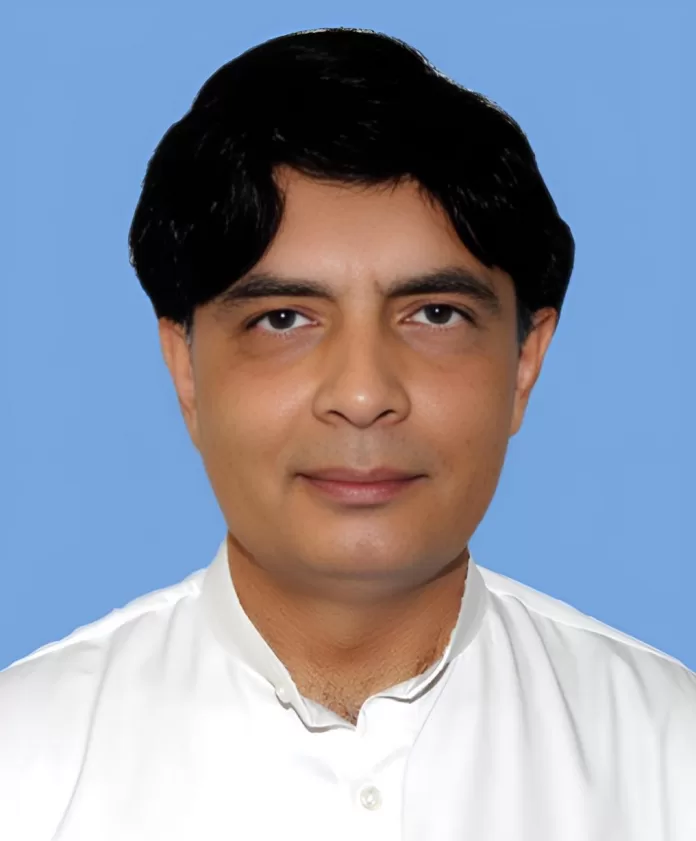The Federal Interior Minister’s excellent initiative for reinvigorating the National Counter-Terrorism Authority (NACTA) effective is most welcome, so is the concept of a National Intelligence Secretariat, NACTA has been mostly dormant, mostly due to the obduracy of Rahman Malik. He wanted NACTA to function under his aegis, with good reason NACTA officials feared Malik would use it for reasons other than countering terrorism. This country became hostage a litany of misinformation rendered on primetime TV by a consummate liar. Dedicated and concentrated effort by a well-equipped, well-trained and well-led force will be required to destroy the terrorists’ potential to spread harm and grief.
A Counter-Terrorism Rapid Deployment Force (CRDF) and the National Intelligence Secretariat must function alongwith NACTA under a separate Division by a Counter-terrorism Czar, and who better than Tariq Khosa? Officered by the Armed Forces and the police, it must the emulate the tremendously successful Anti-Narcotics Force (ANF) that almost eliminated poppy cultivation and drug smuggling in Pakistan. The ANF’s existing structure could be used as the nucleus for the proposed CRDF. Without a CRDF, terrorism may survive more than a hundred years, this country will not!
Credited with turning the FIA around, Tariq Pervez should be brought back from retirement as Chairman NACTA, working under Tariq Khosa he can make a difference if not inhibited by lack of cooperation and funds. In his previous tenure he was powerless to implement a coordinated strategy. Uncoordinated “bits and pieces” effort affects security service delivery across a broad spectrum of likely targets.
Notwithstanding the fact that law and order is a provincial subject, terrorism is a federal problem. The NACTA’s risk assessment process should analyse and define: (1) Related risks; (2) risk-related incidents; (3) risk impact; and (4) likelihood of incidents. Next, it should examine the current ability of the security authorities/stakeholders and ensure the CTF has (1) an organisational structures able to coordinate and deal with security and security-related incidents; (2) ability to deal with emergencies, developing plans and procedures for counter-measures (3) training standards; and (4) coordinate security measures of other agencies and devoted these with its own plans.
According to the UN “Organized Crime” is “large-scale and complex criminal activity carried on by groups of persons, for the enrichment of those participating and at the expense of the community and its members through ruthless disregard of any law, including offences against the person, and frequently in connection with political corruption”. A parallel society outside the control of the government, the nexus between illegal underworld and the economics of parallel illegal markets is guessed at by the intelligentsia with the public blissfully unaware of and/or indifferent to their activities.
This nexus has successfully infiltrated into the higher reaches of government itself in Pakistan, from circumventing the rule of law they have become the rule of law itself. The Swiss letter is an excellent example of how the executive and elected Parliament get fully involved in subverting the rule of law. With due respects to the Honourable SC judges, in being deliberate about dispensing justice they have inadvertently allowed crime to flourish. To understand how criminals function in the name of law, consider the political luminaries and bureaucrats involved in the “ephedrine case” functioning from the office of the chief executive of the country.
Terrorist groups need arms and money, motivated by ideology and criminals by greed, their linkages include money-laundering, fabricating passport and identification documents, providing safe houses, supplying explosives, etc. “Organized Crime” provides couriers smuggling drugs, arms and human beings across the countries and regions. Money earned from drug trafficking supporting both criminal and terrorist activity. The more staunchly ideological jihadists use drugs trade as a means to an end, making them less ambitious and probably more capable of evading law enforcement agencies (LEAs), illicit operations render militant cells more vulnerable to detection. Remedial measures include improving police capability to locate and disrupt criminal networks.
Huge amounts of money channelled into three concentric spheres support necessary logistics for terrorism: e.g., explosives, hideouts, travel and the search and observation of soft vulnerable targets. The consequences of this funding are death and murder. The terrorists in the inner-most circle are surrounded by a second wider circle of direct supporters, planners, commanders, religious personalities, etc., serving as their infrastructure. The third circle is of religious, educational and welfare organisations. In this tunnel vision, democracy is unthinkable and with minimum exposure to the outside world, their strength is derived from isolation of terrorists (and ignorance).

To say that we were (and are) ambivalent in curbing religious militancy is to be charitable. We blurred the distinction between religion and nationalism. We adopted a “divide and rule” policy within Pakistan politics, attempting to marginalize the mainstream political parties, our intelligence agencies contrived at one time to have the combined religious parties win more seats than they had ever done before as individual parties. Who gave these mindless individuals the right to hand over our future to religious ideologues who have no understanding or patience with anyone who do not adhere to their myopic interpretation of religious strictures? Those who incite ethnic and/or sectarian violence should also receive the maximum penalty. After years of vacillation our ulema belatedly seem united against this cancerous menace. Those directly connected to the perpetrators and those giving indirect assistance to them must be targeted, with close monitoring of funds ostensibly meant for charity. Terrorist funding comes through foreign exchange dealers and “havalas”, only processing through scheduled banks will stop the flow. It is not possible to enforce the rule of law by following the rule of law in a totally lawless environment.
Desperate people do exist in different cultures and countries, but they do they have the capacity to provide anyone with explosives, reconnaissance and transportation as is done openly in Pakistan? Having developed a symbiotic relationship, all terrorist acts are not organised crime, and neither are all criminal acts terrorism. In most developing countries, terrorism exists along with varying levels of organised criminal activity: A counter-terrorism policy must not try appeasement. It must be understood that (1) The TTP aims to overthrow the existing government by altering the status quo of the prevailing system while organised crime aims to form a parallel government while coexisting with the existing one; (2) terrorism primarily uses violent means, organised crime prefers non-violence notwithstanding the odd resort to belligerence, mostly as “show of force”; and (3) while terrorism is driven purely by political objectives despite exploitation of regional, national and religious sentiments to achieve their ends, economic objectives are operational determinants of organised crime. Modern terrorists relying on well-funded mentors have no regard for human life.
The Federal Interior Minister, Ch Nisar Ali Khan, is a refreshing change from his despicable predecessor, “we have no choice if we are to save ourselves, the future of our children and our country,” we must fight against the combined nemesis endangering the basis of a civilised society. A multipronged, multi-dimensional counter-terrorism strategy must involve locally elected representatives to engage in outreach at the grassroots level alongwith administrative, social and economic initiatives to root out corruption and organised crime.
Courtesy: The News




